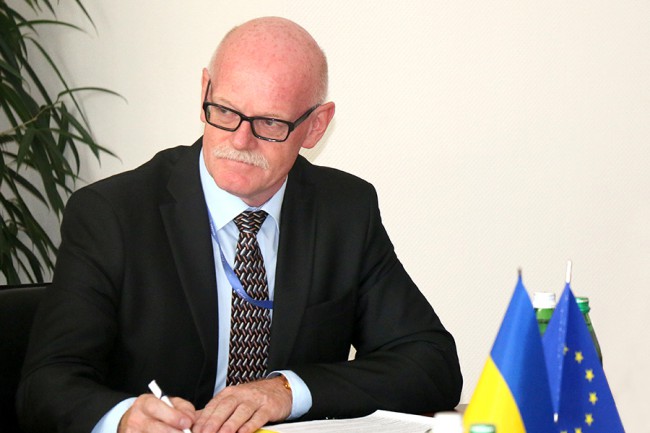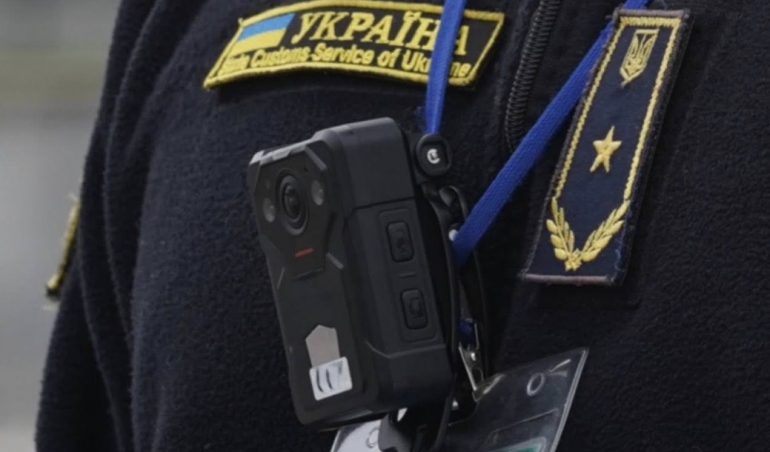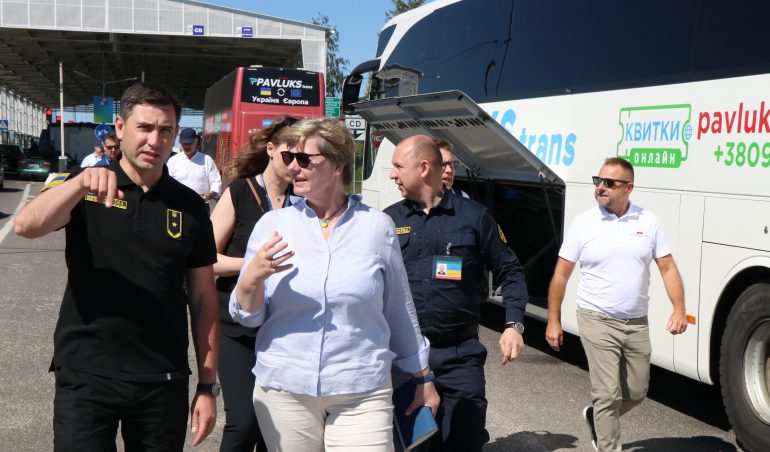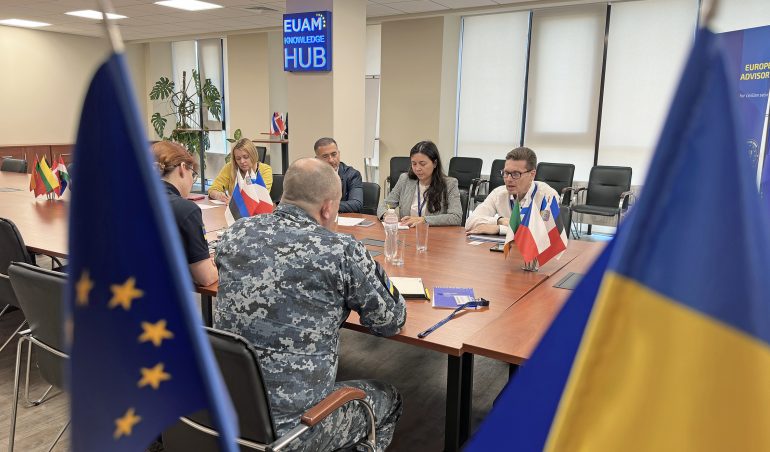Integrated Border Management: an interview with EUAM’s Head of the Strategic Civilian Security Sector Reform Component, Brian Richard
September 08, 2016
An Action Plan for Integrated Border Management (IBM) came into force in Ukraine on 5 September 2016 after adoption by the Council of Ministers on 31 August. Strategic advice for the Action Plan was provided by the EU Advisory Mission (EUAM) Ukraine with the objective of increasing the efficiency and effectiveness of agencies working in border management in line with best European practice.
IBM is a system which promotes cross-border and inter-agency coordination and cooperation. Implementation of the concept will help Ukraine enhance security at the border and meet international obligations, including those relating to visa liberalisation. In this interview, EUAM’s Head of Strategic Civilian Security Sector Reform, Brian Richard, provides a few insights into the principles underlying IBM and why it is necessary.
On any border, it is important to prevent illegal activity but also to facilitate trade. Is there a tension between these two objectives?
Not necessarily – it is possible to improve security at a border while also contributing to the free flow of goods and people. If correctly implemented, Ukraine’s recently adopted IBM Action Plan will promote national and regional stability as well as economic growth. At its core, IBM recognises that national, regional and global challenges in migration, trade facilitation and cross-border crime cannot be solved by one country alone, nor by one agency in a country. Cooperation is key. On the other hand, IBM also recognises that resources are finite and have to be used in a targeted way.
What does targeting resources mean in practice?
One way to achieve efficient resource allocation is developing a thorough awareness of risks and threats and the appropriate methods to respond to them. Let me give an example. You could spend three hours thoroughly checking every family car that crosses the border. That would however be an inefficient use of resources and would moreover annoy people and create a bad first impression of the country.
Best practice is to proceed on the basis of assessing threats. If for example you notice that a vehicle is travelling regularly across a high-risk route, you might want to pay particular attention to it. Patrolling a land or maritime border is expensive and you want to make sure that you are using your budget efficiently, for example by sharing equipment between agencies.
In order to counter threats and identify risks, information sharing between countries and agencies is extremely important. Information on the car I mentioned which travels regularly across a high-risk route may be gathered from a number of different sources. This is one of the reasons why promoting cooperation and coordination is a core goal for IBM. Unfortunately, information sharing is not always easy to promote – a culture of ‘information as power’ is a common problem. But to secure borders, information needs to be shared and this also helps to reduce the potential for corruption.
Who are the main actors in IBM in Ukraine?
There are state actors and non-state actors. The main state actors in IBM in Ukraine are the State Border Guard Service and the State Fiscal Service. But their success depends on cooperation with other agencies such as the National Police, the Ministry of Internal Affairs, the Security Service, the Ministry of Health as well as maritime agencies, veterinary inspection, and phytosanitary inspection.
One of our proposals, which we hope will be taken up in the future, is for Ukraine to have an inter-ministerial decision-making committee to discuss issues related to border management, for example overlapping competences between agencies. This committee would have a link to legislators who can then amend laws wherever revisions to existing legislation are required.
With regard to non-state actors, they play an important role as middlemen between people and goods coming into a country and state agencies – I’m talking about customs brokers or shipping companies for example. They should have a role in fighting corruption, but sadly all too often they are part of the problem. The general public also have a role to play – like with community policing, the best way to combat illegal activity is to enjoy the trust of the public. The State Border Guard Service has a hotline to report corruption, but not other forms of illegal activity as far as I’m aware.
What do you think should be the main objectives in Ukraine to enhance border management?
I’ve mentioned how important assessing risks and threats are, so I would put this as the first objective. I’ve also noted how an overarching framework to discuss border management issues between agencies – for example via an inter-ministerial committee – would be positive. Coordination and cooperation are crucial at all levels.
Delineating competencies between different agencies is another key objective. Sometimes agencies get into competitions with each other and this leads to inefficiencies – I’ve heard of checks which should take 20 minutes taking two hours because of a lack of a clear delineation of competencies or inter-agency competition. There’s a case to be made for the investigative powers of the Border Guard Service to be enhanced, so that they can conduct investigations closer to the source of risks.
Lastly as with many state agencies, the capacity of staff needs to be boosted. Human resources is one area that EUAM has been supporting the State Border Guard Service through training. For example, on 14 September we will provide leadership training for managers in the Border Guard Service in Kyiv. EUAM is also training border guards in strategic communication – encouraging transparency is an important part of the democratic reform process as well as obviously being crucial for information sharing.
Do you have any comments on the Action Plan for IBM?
We are very happy that the majority of our comments on the IBM Action Plan were accepted. Eventually however, for the plan to be effective there will need to be greater clarity about where the financing to implement it will come from. Our Ukrainian partners assure us that this will be covered in a separate document. The plan covers the period 2016-2020, which is a very long time. We would have preferred a slightly more focused time-frame. Overall however, the Action Plan is a sign that Ukraine is making progress in implementing IBM and we will continue to provide advice, training and other assistance to our partners when it comes to its implementation.





